Meet Erin Migneco (she/her/hers)
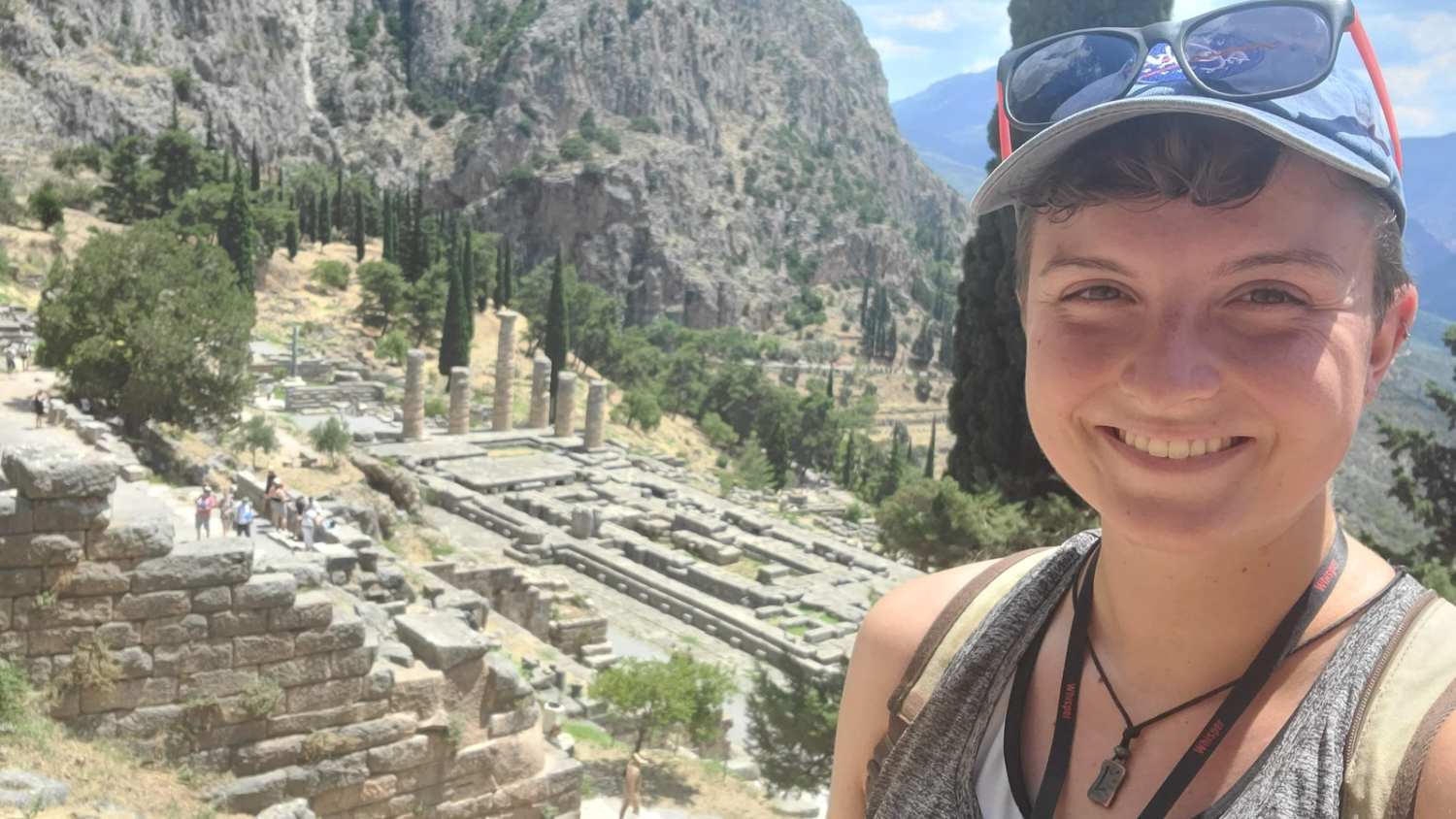
Program and Location:
Summer, College Year in Athens; Despotiko, Greece
Major/Minor:
Anthropology and Communication majors with Geology and Forensic Science minors
Why did you choose to study abroad?
I have wanted to study abroad since first being accepted into NCSU in 2018. Being an anthropology major, my focus was in archaeology, which I knew from the start I wanted to conduct abroad (most likely in the Mediterranean). It was my goal to study abroad in this location while in my undergraduate to see if this really was the location I wanted to focus my research, and I was extremely grateful for the opportunity to have done so when I did.
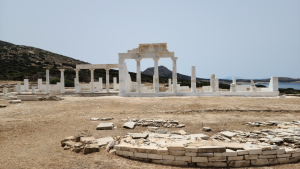
What did you learn about yourself?
I recently wrote a blog post for the Study Abroad Office about this, but this was the most eye-opening opportunity I could have ever gotten in terms of realizing my future plans. Up until going to Greece, I didn’t know what my postgraduate plans looked like. However, after excavating for 5 weeks on the island of Despotiko, while also learning about the area and its rich history, I realized that I wanted nothing more than to continue doing exactly that. For that reason, I had officially made the decision to apply to graduate schools for maritime archaeology.
What was one of your favorite parts of your program?
There are so many moments of this experience that were life changing, but the one I always think back to is the day that Tom Hanks and his family came to our excavation site and talked with us. It was such a crazy experience, shaking hands with Tom Hanks in Greece while covered in dirt and sweat, but it was also one of the most rewarding. Apparently, Tom Hanks had visited this excavation about 20 years ago when it first began, and the day that he had visited was his first time back. Having a celebrity like him praising you and your colleagues for doing such amazing work felt unreal, and it is a moment I will probably think about for many years to come.
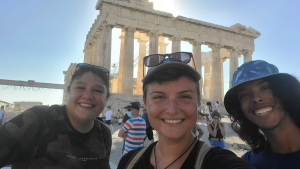
What was your experience with navigating COVID-19 abroad?
Since our program was on many islands of Greece, such as Paros, Antiparos, Mykonos, Delos, and Naxos, COVID-19 protocols were actually being handled very well. I had learned that even though vaccine roll-out was still relatively slow in Greece at this point, priority was given to the more “touristy” places to slow the spread, so every person we came into contact with outside of our program was fully vaccinated. Additionally, there was a strict mask mandate in indoor places all throughout the country, which everyone abided without complaint. The biggest challenge of navigating COVID at this time was actually GETTING to Greece, as booking flights with layovers in certain countries became a very complicated issue. Once I had arrived in Greece, everything regarding COVID policy was dealt with wonderfully.
Were you surprised by anything during your time abroad?
I know it sounds cliché, but I was surprised at how similar all of the students participating in this dig were. Even though we came from all over the world, I was able to relate to some of these students in a way I hadn’t been able to while in Raleigh. Being surrounded by slightly crazy, yet like-minded history buffs and nerds was one of the most cathartic experiences that I wasn’t expecting to have while abroad.
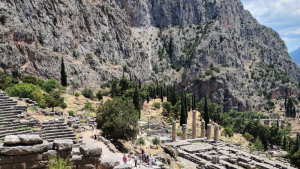
How were your classes abroad different than if you would have taken them at NC State? Did you take any field trips or do anything outside of the traditional classroom?
Our “classes” usually lasted between 5 to 7 each night after a full day of digging, and had taken place at an outdoor café with a little portable monitor as our power-point screen. We were all eating and drinking while learning more information about our area, and I realized that this type of learning environment was one of the most unique ones I have experienced, especially since we were able to watch the sun set over the water each night while discussing. As apart of this field school, we had built-in trips to Delos and Paros, but since weekends were entirely on our own, I was also able to visit Mykonos and Naxos with friends.
In what ways did your identity have an impact on your experience abroad? Is there any advice you would give to other students who share your identity?
I felt like I bonded very quickly with some of the other students on this field school due to our similar identities, and became extremely close with a lot of them from this sense of community.
I think finding and establishing this type of supportive community early on is one of the best things you can do! On my first night in Greece, I sat with a group of about 5 other students who shared my identity and we ended up talking for about 4 hours. They became my closest friends for the month that we were in Greece together, and I still talk with them today.
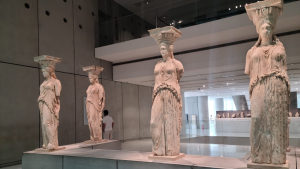
Where did you find support to navigate any challenges you faced abroad?
I had not faced any challenges while abroad, but I would have felt extremely comfortable approaching either of our instructors, or our program guide (who stayed with us for the entirety of our program) with any issues I faced, since they were extremely caring and considerate of their students.
What advice do you have for future study abroad students?
I know it sounds cliché, but be open to anything! This is your chance to step out of your comfort zone since you are already in a new place with new people. If you don’t eat that weird food, or go snorkeling in that submerged archaeological site, or take that boat tour around the local islands, you may never get the chance to do that again! Your regrets will almost always be the things you DIDN’T do rather than what you did do.
Would you do it again?
I would study abroad every year if I could, that’s how much of an impact it had made on me!


